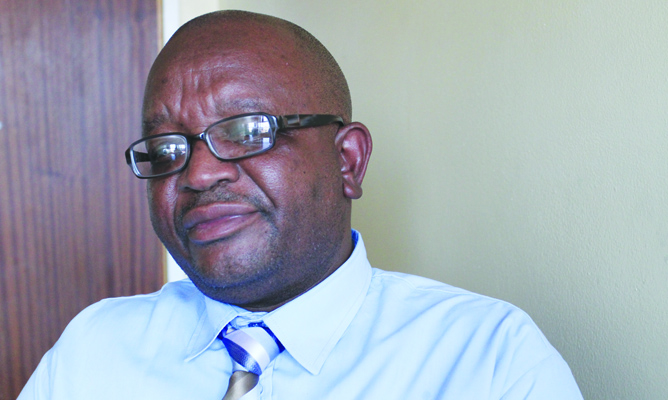
It was Saturday June 6 2015. I was labouring through Nathaniel Manheru’s article. I was drawn to it rather early owing to the pictures of ex-Vice President Joice Mujuru, former Finance minister the late Bernard Chidzero plus those of Tendai Biti and Elton Mangoma, both former ministers from the MDC-T in the recent inclusive government.
Mangoma had just been booted out of the MDC Renewal Team by a “kangaroo court”, one of many that have taken the country’s political parties by storm. Promptly he formed his own party, Renewal Democrats of Zimbabwe, the very next day, catching enigmatic and usually unflappable Manheru off guard — an unusual fit for a local politician. What could the Chartered Accountant and former Minister of Energy be up to?
Manheru, of course, cannot resist taking pot shots at all and sundry. He enjoys the game; a valve for letting steam off, Mangoma’s recent woes providing him with ample ammunition. Otherwise nowadays he sounds a cornered and tortured soul.
The manifesto that is wrongly credited with winning the 2013 general elections has proved to be a vulnerable piece fiction that stretched imagination too far. Nevertheless, it misled a number of Zanu PF luminaries, not least the party’s first secretary, laying the seeds for factionalism.
Results-based management was the way to go, the party faithful and ZimAsset, the later an offshoot of the manifesto — long on wishes and woeful short on bankable strategies, thundered. But the results on the report card have been unkind: Inflation is negative, bickering in Cabinet has increased, exports and imports have regressed, whole industries such as cotton continue to collapse, vendors are everywhere, job losses have accelerated and worst of all, hunger stalks the nation while sovereign debt strangles the country’s economy, as more is piled on.
Mujuru and others could not forever ignore the red ink on the report card. They admit so themselves now. Her vision, she says was not shared by her boss and others in her party. Her sacking from the government is, therefore, understandable. She had two options: Managing up to effect change or throwing in the towel as the country’s former VP before mounting a leadership challenge at the party’s 2014 elective congress. But those who went “ploughing with His Excellency’s heifer”, beat her to the game.

While gleefully enjoying the admission that Mujuru had a different vision to that of the party, alarmed however, at the mention of “a vision”, and being quoted for describing accusations against the former VP as political banter, government spin doctor Jonathan Moyo was quick to dampen discussion on visions, lest the electorate awakens to what ails the economy. That fear of informed debate runs deep in Zanu PF. She should reopen and expand the debate. That way she will render good service to both her former mentor and Zimbabwe again.
- Chamisa under fire over US$120K donation
- Mavhunga puts DeMbare into Chibuku quarterfinals
- Pension funds bet on Cabora Bassa oilfields
- Councils defy govt fire tender directive
Keep Reading
Beyond the pot shots, I glimpse some respect, if not affection, for Mangoma in Manheru’s article, just as for Biti before. There is a subtle warning that political parties require huge resources to bankroll their activities. It comes in the cryptic reference to polygamy and well-stocked granaries. It is mentioned the MDC formations have none. There is also a subtle threat on the impossibility of a political opposition’s mission when the ruling party has “captive” rural constituencies.
Zanu PF, of course, has the parastatals, State and other quasi-State coffers and machinery by the throat. And it won’t voluntarily let go. I get the feeling Manheru is on a recruitment campaign. Wattage, as First Lady Grace Mugabe hinted recently, is woefully low in the revolutionary party.
The first secretary of Zanu PF at the elective congress that wasn’t, hinted at the formation of a party think-tank. Mangoma and Biti could be useful members of that small tent. After all, Mangoma has a good working relationship with Vice-President Emmerson Mnangagwa. Some factionalism in Zanu PF, or indeed in any political party, based on ideology, is not bad at all. It is a sign the party is alive, mature, dynamic and willing to adapt to changing electoral or economic environments. Such parties can reinvent themselves, as the Labour Party did in the UK, when the “Blairites”, a faction, led it to a resounding general election victory.
Conversely, those with one centre of power, with one faction, usually fail to adapt, no matter how strong they may be. The Soviet Union’s Communist Party was one example. The theory of evolution teaches us that it is not how strong you are as specie, but how able you are to adapt that ensures the survival of species. Extinction beckons to the inflexible, as it is doing now to Zanu-PF and the MDC-T.
Mangoma espouses the vision of his new party. Unsurprisingly, there is nothing new. It is more or less the same as that of all opposition parties and the ruling party itself. He says given the country’s resources, no one should be poor. I have heard President Robert Mugabe say the same. I can swear I heard MDC-T leader Morgan Tsvangirai utter the same. Former US Secretary of State Andrew Young while on a trip to Harare recently said so too.
I hear Chris Mutsvangwa Zanu PF War Veterans’ minister, progressive liberal economic views as Mangoma answers in his interview with the State media. What then is the difference between our political parties? Like Mangoma, they all profess to be principled and values-laden. But closer analysis shows it is in values and principles among the leadership that the nation is challenged.
That should narrow the criteria the electorate uses to choose its representatives. For example, between Dumiso Dabengwa and Mugabe, whom do you trust?
l Tapiwa Nyandoro can be contacted on [email protected] or [email protected]











